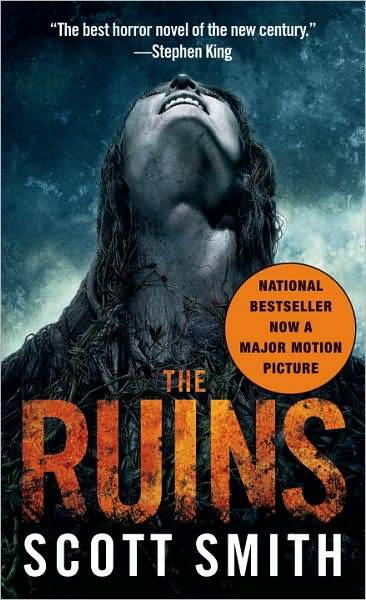 It’s sad how whole families are torn apart by simple things, like wild dogs – Jack Handey
It’s sad how whole families are torn apart by simple things, like wild dogs – Jack Handey
Since the beginning, not one unusual thing has ever happened – The universal law
You know what they say the modern version of Pascal’s Wager is? Sucking up to as many Transhumanists as possible, just in case one of them turns into God. – Julie from Crystal Nights
When the axe came into the woods, the trees said: ‘But at least the handle is one of us.’ – Turkish proverb
The society which scorns excellence in plumbing as a humble activity and tolerates shoddiness in philosophy because it is an exalted activity will have neither good plumbing nor good philosophy: neither its pipes nor its theories will hold water – John W. Gardner
No snowflake in an avalanche ever feels responsible – Voltaire
Luck is statistics taken personally – Penn Jellete
Be careful what you pretend to be because you are what you pretend to be. – Kurt Vonnegut
A good friend will always stab you in the front. – Oscar Wilde
I believe I have found the link between animals and civilized man. It’s us – Konrad Lorenz
Mr. Chamberlain likes to take weekends in the country. I shall take countries in the weekend — Adolf Hitler (apocryphal?)
Death is not extinguishing the light; it is putting out the lamp because the dawn has come. — Rabindranath Tagore
As a startup CEO, I slept like a baby. I woke up every two hours and cried. – Ben Horowitz
We judge others by their actions, but we judge ourselves by our intentions – Ian Percy
He uses statistics as a drunkard uses a lamppost: for support, not for illumination – G.K. Chesterton
How delightful are the pleasures of the imagination! In those delectable moments, the whole world is ours; not a single creature resists us, we devastate the world, we repopulate it with new objects which, in turn, we immolate. The means to every crime is ours, and we employ them all, we multiply the horror a hundredfold. – Marquis de Sade
No Comments »
 Stephen King describes this book as “your basic long scream of horror.” I read it and uttered a basic long scream of boredom. It’s another pandering “wants to be a horror movie” book that does everything except list the names of ideal actors for the film adaptation in the cover sleeve.
Stephen King describes this book as “your basic long scream of horror.” I read it and uttered a basic long scream of boredom. It’s another pandering “wants to be a horror movie” book that does everything except list the names of ideal actors for the film adaptation in the cover sleeve.
Why do I see such a neglect for literature in horror? Literature’s great. Literature rules. Literature can do things and access places that cinema never can and never will, and yet writers almost seem to treat it as a necessary evil on the road to a screenplay. Yeah, books. Those things made of paper. No reason to bother with them, except that sometimes they turn into movies.
In this case, the “film über alles” attitude has resulted in a bare bones, uninvolving story that consists primarily of descriptions of visuals. The story’s totally familiar. A bunch of college kids are on vacation, and instead of a guy in a hockey mask they run afoul of evil plants.
Why plants? Welcome to modern horror: there’s no logic to why anything happens. The book’s floral nemeses are kept shadowy and mysterious, allowing Scott Smith to imbue them with whatever characteristics are convenient at the moment. At one point the vines are drinking the tourists’ blood. At another point they’re imitating the tourists’ speech. Why stop there? Why not have the plants walk around? Everything that happens is totally arbitrary.
Roger Ebert said it very well when talking about Labyrinth. “I have a problem with almost all nightmare movies: They aren’t as suspenseful as they should be because they don’t have to follow any logic. Anything can happen, nothing needs to happen, nothing is as it seems and the rules keep changing. Consider, for example, the scene in “Labyrinth” where Sarah thinks she is waking up from her horrible dream and opens the door of her bedroom. Anything could be outside that door.Therefore, we’re wasting out psychic energy by caring. “
Prose does not carry across into a movie, so Scott Smith doesn’t give much of a shit about it here. It’s written in a bare-bones reportage style with not a word wasted, and not a word put to good use. The book’s horror works at an exclusively visual level, and this sort of thing needs a stabbing orchestral score to be really effective. Nowhere does the prose start to work magic.
The book is overlong and exhausting, with too many scares pitched at the same level, and not enough space to breathe. But it takes several hours to read, while the movie version is just 90 minutes long, so – another indicator of the book being a troublesome, flawed frog, while the movie adaptation is the handsome prince. All that’s missing is the scrolling credits at the end. Fans can recreate the scrolling at home by feeding The Ruins‘ pages to a shredder.
No Comments »
Luke McKinney is an Irish fella who writes annoying clickbait articles for Cracked, mostly of the “I Fucking Love Science” variety. At some point he also started a Twitter account. Unfortunately, chopping his writing into 140-character pieces was not enough to kill it.
Will Self said that Inception was “a stupid person’s idea of what an intelligent film is like.” Luke’s packaged Twitter quips are like that, too. Yes, they resemble jokes. You can find one part that looks like a setup, and then another part that looks like a punchline. But you don’t laugh. They’re always miscalibrated in some way.

He starts strong, then falls off his bike and shits himself. I didn’t react with laughter, I reacted by thinking “A game that realistically models infection and disease might actually be pretty fun. Someone should make one. What was the joke again?”

The tweet is phrased like a smackdown, but since what he’s saying doesn’t make much sense, it provokes confusion, not laughter. He lights the fuse, but the powder is wet. Meanwhile, check out his pandering opinions4u about #feminism.

#FEDORAS #DOUCHEBROS #SOLIDARITY #AMIRITELADIES #BEYONCE #JUSTCLICKTHERETWEETBUTTONPLEASE
As noted, he is a big fan of science…or is he? I sometimes wonder about these “SCIENCE IS FUCKING AWESOME” people. Do they really care that much? Or is it just a badge of identity, like how skinheads wear Doc Martens? Is their professed love of science just a way of feeling special and erudite and above all the other jackoffs regurgitating “rebellious” opinions online that are actually not very rebellious at all? Not that Luke McKinney would feel the need to do anything of the sort.
On the positive side, reading his twitter keeps you a safe OH&S-regulated distance from his articles…and his Oscar Wilde worthy prose…
Research lets you turn your soul into a fascination engine, consuming the output of human intelligence, living and breathing the very pinnacle of human progress. Then reaching out to push it a little bit further.
It lets you “breathe” the “pinnacle” of something, does it? I hope science is FUCKING AWESOME enough to drop a space rock on your head, fag.
No Comments »
 It’s sad how whole families are torn apart by simple things, like wild dogs – Jack Handey
It’s sad how whole families are torn apart by simple things, like wild dogs – Jack Handey



